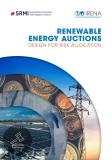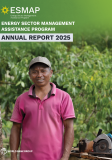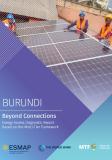Publications
Also available in Vietnamese
Offshore wind could play a significant role in sustainably meeting Vietnam’s rapidly growing electricity demand and has the potential to supply 12 percent of Vietnam’s electricity by 2035. By replacing coal-fired generation, this could help to avoid over 200 million metric tons of CO2 emissions and add at least USD$50 billion to Vietnam’s economy by stimulating the growth of a strong, local supply chain, creating thousands of skilled jobs, and exporting to other offshore wind markets globally.
This roadmap provides strategic analysis of the offshore wind development potential in Vietnam, considering the opportunities and challenges under different growth scenarios. It is intended to provide evidence to support the Government of Vietnam in establishing policy, regulations, processes, and infrastructure to enable successful growth of this new industry.
This report, a joint WB-IFC study, is one of a series of offshore wind roadmap studies commissioned by the World Bank Group under the joint ESMAP-IFC Offshore Wind Development Program. Funding and technical collaboration for this study was generously provided by IFC and the Energy Sector Management Assistance Program (ESMAP).
Tran, Ky Hong; Kitchlu, Rahul; Chu, Thi Ba; Leybourne, Mark Thomas; Whittaker, Sean; Knight, Oliver; Dutton, Alastair Simon Piers. 2021. Offshore Wind Roadmap for Vietnam. © World Bank, Washington, DC. http://hdl.handle.net/10986/36249 License: CC BY 3.0 IGO.



